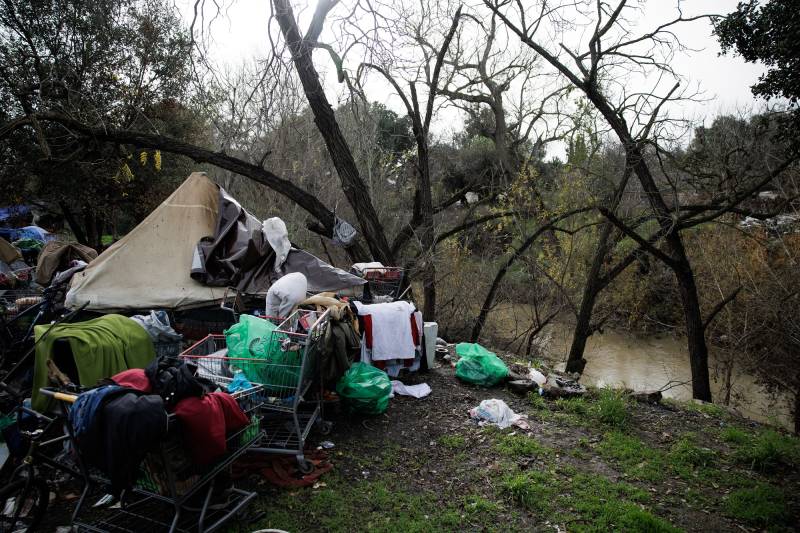“We want people to be able to adhere to the encampment condition guidelines and remain a low priority for enforcement,” said Mark Bilski, an assistant officer in charge of the Good Neighbor program. “At the same time, urgent staff and public safety issues sometimes don’t allow this. If someone physically threatens staff, we need to be able to act immediately.”
The district also voted to prohibit the possession of firearms, ammunition and fireworks on lands owned by Valley Water.
District officials said encampments cause environmental harm when trash, food and other items flow into waterways. The debris can also cause blockages or pinch points in channels meant to help control flood waters. The district has also raised safety concerns for its workers, who claim to have been threatened or accosted by people living near waterways.
Barbara Keegan, Valley Water District 2 director, voted in favor of the ban, saying unhoused people who live on the banks of streams or rivers “are in the worst place under the worst possible circumstances, and it’s inhumane to leave them there.”
Daniel Hansen, who lives along San Francisquito Creek in Palo Alto, supports the decision. He thinks a permanent solution along waterways could include fencing blocking people from entering them.
“I think it strikes a good balance of notice, as well as a firm hand,” he said. “For 20 years, we’ve experienced a lot of the encampment issues, more so recently, this includes human waste, garbage, noise, open fires and crime.”
In a July listening session, the district reported that some stakeholders called the “approach backward,” saying it would shift unhoused people into neighborhoods and “will criminalize people, not behaviors.” The district reiterated it is “committed to harm-reduction approach” and that the district trains its field staff in “calming and de-escalation strategies.”
Rebecca Eisenberg, Valley Water District 7 director, voiced strong opposition to the plan. She argued the ordinance would end up protecting water district staff and further harm unhoused people.
“We need to focus on violent folks, not the nonviolent folks,” she said. “Giving unhoused people criminal records is going to push them backward, not forward.”
Jeremy Barousse, director of policy and organizing Amigos de Guadalupe Center for Justice and Empowerment, recommended that the district push the plan start date into the spring.
“Enforcing this ordinance shortly after the holidays is just cruel,” he said. “We recommend providing at least five days’ notice before encampment removal and three warnings before arrest or citation.”

